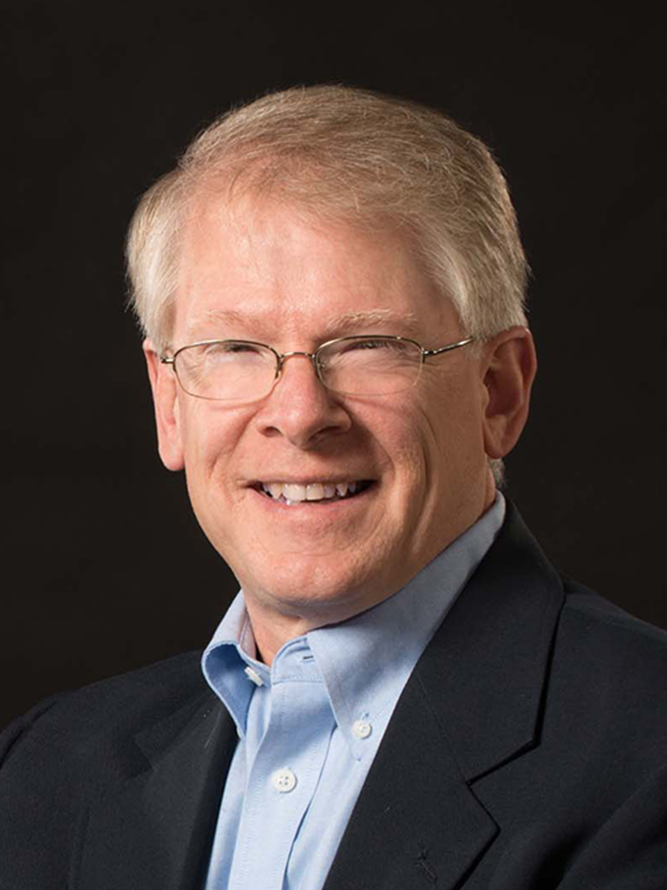Peter M. Lefferts
Professor of Music History emeritusArea of Focus: Music History
Music historian Peter M. Lefferts is Professor of Music emeritus in the Glenn Korff School of Music of the University of Nebraska-Lincoln, where his teaching responsibilities spanned the broad range from introductory courses in listening for freshman non-majors, and courses in music history and theory for undergraduate majors, to doctoral seminars. He also served a full term as the Director of the Medieval and Renaissance Studies Program at UNL. In the summer of 2006 he stepped down as head of the Division of History/Theory/Composition after serving in that role for seventeen years. Dr. Lefferts was appointed in Fall 2007 to be the Chief Adviser for UNL music majors on the BA and BM degrees. In 2009 he won a UNL Teaching Council and Parents Association Certificate of Recognition for Contributions to Students, and in 2010 he won the Hixson-Lied College of Fine and Performing Arts Achievement Award in Academic Advising. He was awarded a Hixson-Lied Professorship for 2009-12 and 2012-15.
Dr. Lefferts was the Associate Director of the Glenn Korff School from 2014-2016, served in 2016-2017 as Interim Director, and reassumed the position of Associate Director for one final year, 2017-18, before returning to the teaching faculty. He retired with emeritus status in Sep;tember 2022.
Professor Lefferts has lectured and published extensively in North America and Europe. As an author and editor, Lefferts‘s areas of research specialization include medieval and Renaissance English music, the medieval motet, early music notation, early music theory in Latin and English, the tonal behavior of 14th and 15th century songs, and the relationship between church architecture and liturgy. He has been a member of the international advisory board of the Digital Image Archive of Medieval Music based at Oxford University, and a member of the Advisory Board of the Center for the History of Music Theory and Literature at Indiana University. At UNL he directs the web-based project entitled Texts on Music in English from the Medieval and Early Modern Eras (TME), which is found on-line at http://www.music.indiana.edu/tme, and he also runs a project center of the Thesaurus Musicarum Latinarum (TML). Dr. Lefferts was an associate editor for Medieval England: An Encyclopedia, with responsibility for writing or commissioning all entries on music and liturgy. He has also contributed articles to the revised The New Grove Dictionary of Music, the revised Die Musik in Geschichte und Gegenwart, the Oxford Dictionary of National Biography, and the new Oxford Dictionary of the Middle Ages. He is the contributor of two chapters to the Cambridge Companion to Medieval Music (2011), and of a chapter in the Cambridge History of Medieval Music (2017). With Dr. William J. Summers he co-edited English Thirtenth-Century Polyphony: A Facsimile Edition (Early English Church Music 57, 2016), for which he contributed all the letterpress. He co-authored The Dorset Rotulus (2021), and he is under contract with the British Academy to prepared an edition of facsimiles of 14th-century English music for Early English Church Music.
An additional research area for Dr. Lefferts since 2002 involves topics growing out of local Nebraska history through the role of music at the Trans-Mississippi and International Exposition held in Omaha from June-October 1898, and at its 1899 offshoot, Omaha's Greater America Exposition. This project has spilled over into several other areas, one of the most interesting of which is the bands and bandmasters of the United States Government intertribal, off-reservation Native American boarding schools, especially at the Carlisle, Genoa, Flandreau, Haskell, Chilocco, Phoenix, and Riverside schools. The bandmasters he is studying include Dennison Wheelock, James Riley Wheelock, and Nels S. Nelson. J. R. Wheelock conducted a black US Army regimental band in World War I, which has spurred work on the black regimental bands, including their first black bandmasters and the bandmasters of the bands of the new black infantry and artillery regiments formed for World War I; this has spilled over into work on early African American theater musicians. Another related research area is the role of American composer Thurlow Lieurance, while employed in Lincoln at the Glenn Korff School of Music, to recruit and prepare Native American musicians from the boarding schools for employment in Circuit Chautauqua acts. In a different direction, work on Omaha has led to a project involving Homer Moore, Dvorak, and American Wagnerism. And yet another thread leading out of this research has yielded "Will Marion Cook and La Revue nègre (1925)", delivered at a conference at Columbia University in March 2015.
In the spring of 2008 Dr. Lefferts designed and taught for the first time a graduate-level course on Music History Pedagogy, which he continues to teach, that is aimed to prepare not music historians, per se, but rather those doctoral-level music performers seeking academic appointments who anticipate being assigned to deliver music history classes.
Dr. Lefferts was born in Boston, Massachusetts, and raised in Rochester, New York. He holds the B.A., M.A., M. Phil., and Ph.D. degrees, all from Columbia University. Before coming to Lincoln to join the faculty of UNL he taught at Columbia University and the University of Chicago.
